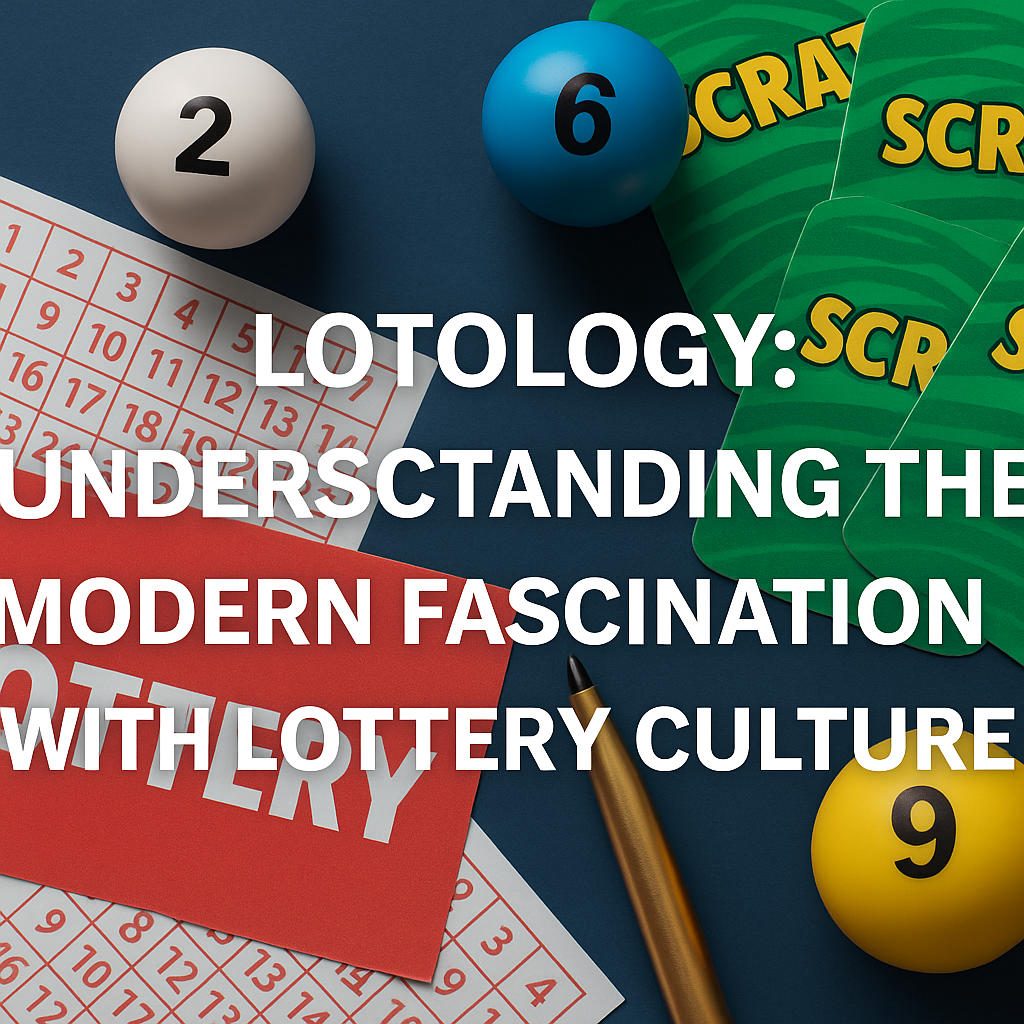In the whirlwind of daily life, many of us look for a spark of hope, a burst of energy, or the chance to flip our world upside down with little effort. Enter lotology—the study of lotteries, scratch-off tickets, and every form of chance-based fun that promises instant change. Lotteries aren’t new, but when the internet and smartphones went mainstream, lotteries evolved fast. This change creates both new chances and new risks, shaping the way we live and feel in fresh ways.
What is Lotology?
Lotology isn’t just about the jackpot; it’s a deeper look at how any ticket, scratch card, or app-based draw messes with our minds, our neighborhoods, and our wallets. The term covers every way we come into contact with these games—the lines at the convenience store, the scroll-through of flashy ads on an app, the community buzz when someone wins the mega prize. Lotology shows us how we chase the thrill of nearly winning and how we allow ourselves to dream way bigger than the odds. Whether you’re holding a crumpled ticket or tapping to buy online, the draw pulls at the same urge in all of us: a glimpse at a different life for just one little investment.
A Brief History of Lotteries
Lotteries go way farther back than most of us think. Archaeological digs in China reveal that lottery-like games funded huge projects, including sections of the Great Wall. Later, in Renaissance Europe, kings, queens, and cities ran lotteries of their own, usually to pay for soldiers or new bridges. The lotteries quickly morphed into businesses controlled by the state, giving governments cash without passing the hard-to-swallow tax hat around.
Today’s lotteries are more than cash cows; they are full-on spectacles where TV ads and giant checks make the draw feel like halftime at the Super Bowl. The study of these games, called Lotology, digs into why this centuries-old pastime still pulls in huge crowds a thousand years later.
The Psychology Behind Lotology
Our brains are like popcorn machines that pop at the smell of reward. When you slide that dollar into a vending-like lottery machine, you aren’t just daydreaming of millions. You are already riding the mini roller coaster of waiting for the numbers, feeling the reward in each tick of suspense. Psychologists call this the “hope effect,” and studies show it’s more addictive than you think. The actual chances of winning are paper-thin, yet the price of a ticket feels like a tiny, yet priceless, ticket to a fantasy.
Lotology points out a strange truth: even when we know the odds are terrible, we still get pulled in by the tiny chance of a life-changing jackpot. The thought of “what if this time will be different?” often wins out over cold percentage chances. That mental battle is a big part of why people spend billions on tickets every year.
The Social Impact of Lotteries
Lotteries aren’t simple either good or bad; they have a mixed record. The cash they raise pays for things the community needs, like schools, hospitals, and roads. Supporters call them a voluntarism tax—if you enter, you’re choosing to help fund public programs.
At the same time, these games can hurt the very people they’re supposed to help. Families already in debt often budget money for tickets, hoping to win a way out. Critics point out that this isn’t a fair or life-changing chance; it’s a pricey payday and a form of exploitation. Lotology asks the tough questions about trade-offs, fairness, and when chance crosses the line into taking.
Digital Evolution of Lotology
The game has changed, in part because of technology. We can now buy tickets with a tap or enter a draw using an app, often from our couches, not through the corner store. Some even use a lottery built on secure blockchain software. Those new options make it even easier to get in on the draw, for good and for bad.
Yet the rise of mobile jackpots and live betting strips the edges off traditional play and churns fresh anxiety around dependence and access. Teens and pre-teens, who ride every trending app, encounter point-and-tap betting before they master fractions. Lotology keeps pace, tracing how the draw, spin or click influences not only profit-and-loss screens today, but the playbook of tomorrow’s culture, economy and values.
Why People Still Love Lotteries
Year after year, cash-craving, daydream-tossing players flood checkouts the world over. Four forces keep them coming back.
- Hope in Uncertainty — A five- or six-figure dozens lobby fights the grayness of paying rent or missing meals.
- Affordable Entertainment — One, maybe two, folding-blue-coin pops against the price of candy and sparks pop-star possibility.
- Cultural Rituals — A wallet swap slides easily from dad to scout night, the dollar-panel collage whispering, This could be the vintage needed refrigerator.
- Public Benefit Narratives — Your quarter lifts playgrounds, grants and hospitals, emit the slicked ads until neighbors in matching jackets pitch pennies or else.
Refrains from boom-time Bronx country to sleepy Bombay already knee-deep in pop culture bucket lists.
The Ethical Debate of Lotology
Lotology’s scope widens to ask whether clicking, texting or in-app shouting meets service pitch halfway. Slot and glow ads conquer summer fields in ever-larger army camo.
- Advertisements — Should flash-only, animated stunts that kid-eye the audience in cartoon density vanish after dusk, or texture fade time and distance.
- Protective Forces — Are tags on play-limit-sliders and language-headers enough, or do weekly set-up blockers, kiosk contracts and income slides spit back vulnerability at every click.
Lawmakers, be they curators, technologists or pitch-apprentices, still tinker; the broadest draw between paying fun and plucking soul arranges the agenda of us coming weekends.
Conclusion
Lotology reveals how we combine hope, luck, and reason to chase a better future. The excitement of a jackpot will always grab our attention, but we need to look closer at the lasting effects on our communities. Lotteries, whether rooted in local customs or boosted by the latest apps, do more than offer a prize—they mirror our shared ambitions and the risks we often ignore.
As we keep talking about lotology, we must keep in mind the new rules, the effects on our wallets and minds, and the growing list of ethical questions. For up-to-date analysis and trustworthy facts about this topic and others like it, Ghostear is the place to turn.



